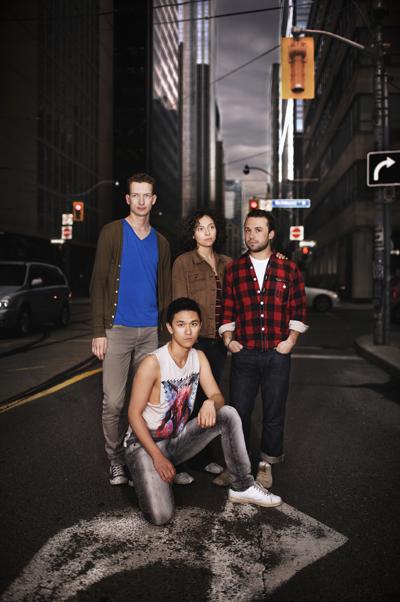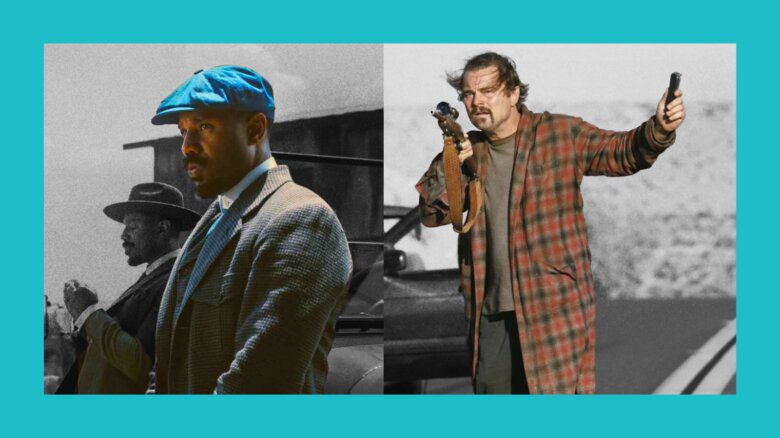In order for theatre artists to effectively promote their work, it’s important for them to be able to clearly define their product. But for director Jonathan Seinen, who helms lemonTree theatre creations, along with Cole J Alvis and Indrit Kasapi, explaining the collective’s new play, Still Life, is proving a difficult challenge.
“It’s hard to articulate exactly what we’re trying to achieve without sounding either pretentious or simplistic,” he says over tea at Fabarnak in the 519 Church St Community Centre, where the company is rehearsing. “The best description I can give right now is that it’s four people speaking truthfully about their experience of being queer in Toronto.”
Seinen and his collaborators first began tossing around the idea for the piece two summers ago, during the group’s production of Jean Genet’s Deathwatch. Taking as their initial inspiration the story of a gay couple who were not out to their families and the murder that fall of Christopher Skinner, the company embarked on a series of structured improvisations. Two workshops later, they had developed a script, though Seinen is cautious to use that word, as the text of the show is by no means set in stone.
The basic framework involves four characters whose lives intersect in different ways. Stephen (Andrew Aquino) and Matt (Kasapi) are a purportedly monogamous couple, struggling with Matt’s inability to come out to his family. After a fight, Stephen flees the house and meets Andrew (Alvis) at a bar. Following a romantic interlude, the two are biking home when they are attacked. Sarah (Alisha Stranges), a young dyke dealing with her own coming-out process and search for community, witnesses the attack, but also knows Stephen and Matt. Sarah’s questions about what Stephen and Andrew were doing together when the attack happened come to the surface.
While the basic storyline remains the same, the actual content of the show varies from performance to performance.
“Technically the show is improvised each time it’s performed,” Seinen says. “The framework for each scene remains the same, but the way in which things flow back and forth between the actors fluctuates. It’s a fine line between riding the wave of the improvisation and getting lost in your own detours.”
Performing with a constant level of uncertainty would be a terrifying thing for many actors. But for this company it’s both a satisfying challenge and a consequence of creating a very specific kind of theatrical event.
“I don’t know if it sounds totally flaky, but I suppose we’re working towards presenting a certain kind of truth onstage,” Seinen says. “Ultimately, this piece is very much about who we are as people and the realities of our ever-changing lives. Our challenge is to try to get below our immediate reactions to issues like infidelity or gaybashing and recognize what’s going on below the surface.”


 Why you can trust Xtra
Why you can trust Xtra


